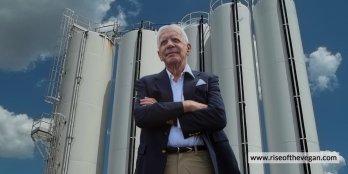
Large Dairy Company Ditches Dairy after 90 years and Starts Producing Plant-Based Milks Instead
Elmhurst Dairy in Queens, New York has ceased it's dairy operation after 90 years citing decreased customer demand.
Since it was incorporated in the 1920's Elmhurst had grown to be one of the largest dairy manufacturers on the East Coast of the USA supplying a metropolitan area of seven million people.
CEO Henry Schwartz said the company has been operating at a high cost in recent years and revealed that “Pasteurized fluid milk has sort of gone out of style.”, "we are unable to continue to go on without ongoing losses." “There isn’t much room for our kind of business. I tried to keep this open because it was my father’s plant and he asked me to do so.”
The shutdown reflects ongoing trends in the dairy milk business: increased consumer awareness of the treatment of cows in the milk industry as well as consumer concern about saturated fat, cholesterol and hormones is causing year-on-year declining sales.
Are you following our Facebook page?
Andrew Novakovic, a professor of agricultural economics at Cornell University, said milk consumption peaked in the late 1940s and has declined sharply in the last few years, from about 240 pounds per person in 2010 to about 120 pounds per person in 2015.
However the declining demand for cow milk has lead to a growth explosion for plant-based milks, so Elmhurst Dairy have dropped the dairy and renamed to simply 'Elmhurst' and will instead produce their own range of healthy plant-based milks.
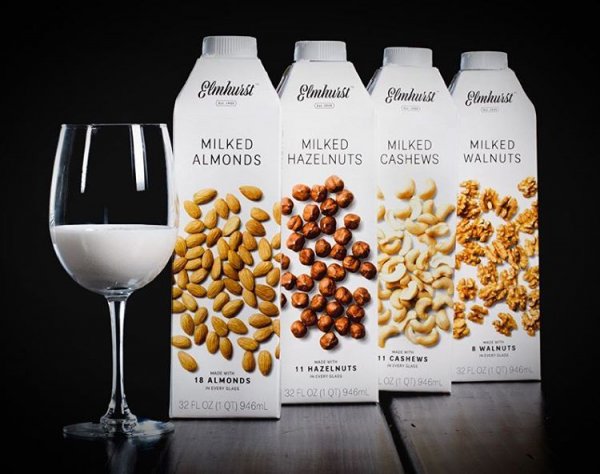
Elmhurst debuted their new range named 'Milked' at the trade show Natural Foods Expo West in Anaheim, California last week.
The whole range are suitable for vegans and have very minimal ingredients.
Schwartz says their new range has "up to 4 times more nuts per serving than the other leading brands" and will be available in four varieties, Almond, Hazelnut, Cashew and Walnut. Each contains only raw cold-milled nuts and simple ingredients. And "No emulsifiers, thickeners, whiteners or frankenfood proteins" are used.
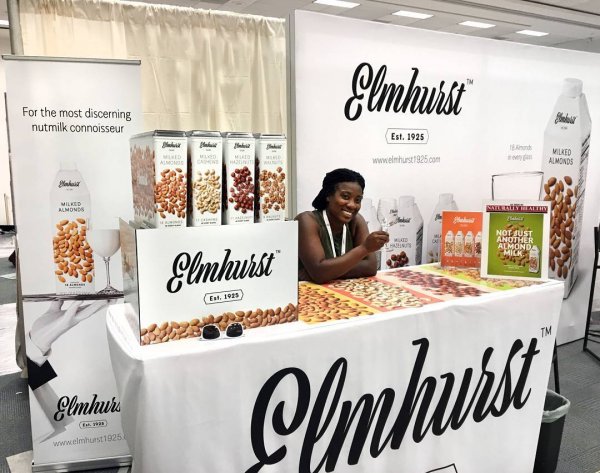
Turning cows into milk machines has led to epidemics of "production-related diseases", such as lameness and mastitis (udder infections), the two leading causes of dairy cow mortality in the U.S. This weakness is due to the extreme genetic manipulation and supplemented hormones which cause unnaturally high milk yields.
According to the USDA, 1 in 6 dairy cows in the U.S. suffers from clinical mastitis. This level of disease is reflected in the concentration of somatic cells in the milk. When a cow is infected, more than 90% of the somatic cells in her milk are neutrophils, the inflammatory cells that form pus. The average somatic cell count in U.S. milk per spoonful is 1,120,000, however the dairy industry says this pus doesn't matter because the milk is pasteurized (the pus gets 'cooked').
Dairy milk has also been found to contain an alarming cocktail of hormones including: progesterone, oestrogen, cortisone and other adrenal steroids, IGF-1 growth hormone, leptin, oxytocin, prolactin, thyroxine and triiodothyronine. This makes sense as it's designed to rapidly grow a baby calf - but aren't components humans should be consuming.
These days it's so easy to avoid all this by just drinking plant-based milks instead. If you're not vegan yet, switching your milk might be the best and easiest place to start. In fact, over the last few years so many people are switching away from cow milk that the dairy industry is in serious decline. In the UK more than a thousand farms have closed in the last three years, and research conducted by Mintel shows that half (49%) of Americans now regularly consume non-dairy milk.
This article is another example of the plant-based revolution that Google CEO Eric Schmidt predicated last year. Meanwhile people are also ditching whey protein powders in favor of plant-based protein powders, which have seen a significant increase in sales. And new research helped conclude that plant-based protein was best for building muscle.
Subscribe!
Love this content?
Receive our awesome newsletter straight to your Inbox!

 Your email address will always stay private.
Your email address will always stay private.

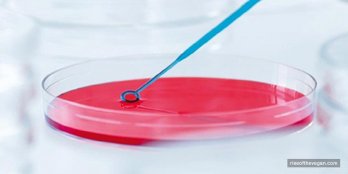
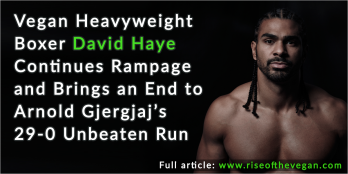
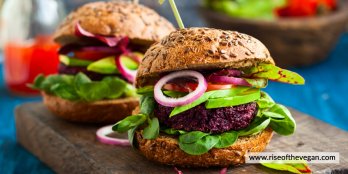
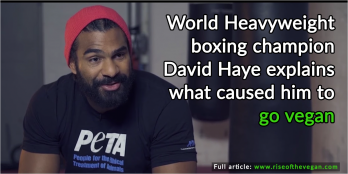
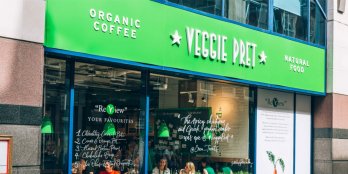

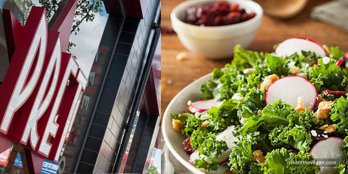
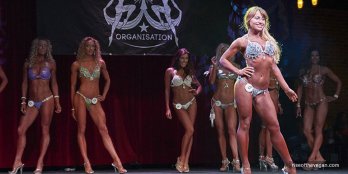
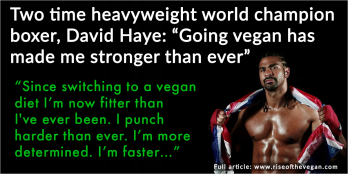

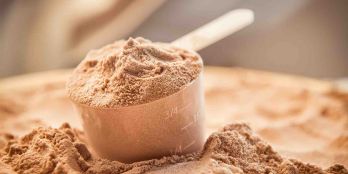
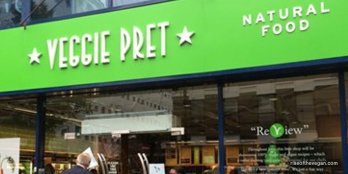
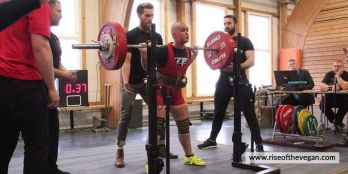

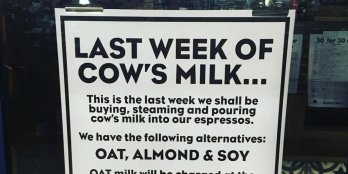

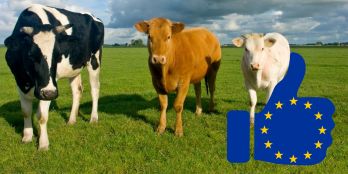

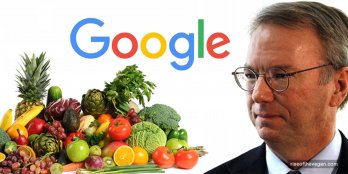

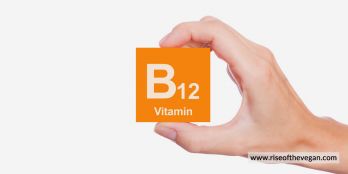
Comments
Great article! And I love the video clip! I would add that milk, ALL milk is only for BABIES. No adult animal of any kind needs or should be drinking animal milk of any kind. Otherwise mothers would be lactating into our adulthood! The fact that so many people are dairy intolerant, along with all the evidence that milk is a huge contributor to atherosclerosis (it coats our arteries and clogs them, which leads to coronary artery disease, heart attacks, and strokes) should have been a clue that milk is not appropriate for us ... any milk, much less milk from another species!
Updating your business model and change doest have to destroy you or your company. Kudos to this innovative dairy owner who instead of digging in his heels and resisting change, embraced it instead and was able to keep his promise to his late father, keep people employed and all the while no harm to anyone or animal. It's a win, win WIN.
So increduled that "educated" people use fear of bacteria cells and hormones that are naturally occurring in all lactating mammals as justification of the vegan fad. The hormones listed are also synthetically used during child birth. Maybe you should boycott hospital maternity wards injecting humans with hormones... it's about educated choices, not dictating right and wrong with fear.
the problem with such companies is that is all about profit, not about awareness, compassion or ethics. they switch to vegetal milks only because cow milk industry is less profitable and still very competitive. another big problem (not mentioned in this article) is what happens with the animals living in those farms: slaughterhouses or sanctuaries? what if this company sold the cows to the slaughterhouse, and invested the money in its new factory? those companies and farms have the responsibility to provide safe houses for the animals they don't use, and one solution is that a percentage of the milk price to be directed to sanctuaries. it could be more expensive, but at least people would know that they can help.
It was soy milk that was good and forgettable fortunately cause I wanted to stop it because it didn,t turn into a habit of mine, you also learn that soy milk brings its habit.
This is an instance where the bottom line is in favor of animals! I'm not going to reiterate ALL the bad that dairy has done I am just happy that Elmhurst has stopped! Thank you Elmhurst! The Cows